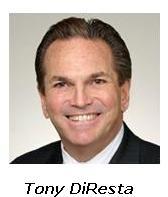Now That "Social Media is a Regulated Industry," Have You Developed a "Culture of Compliance?" - Ed Keller - MediaBizBloggers

This week, on December 1, the FTC's new Guidelines for Endorsements and Testimonials in Advertising went into effect. As I have written here previously, these new Guidelines have significant implications for both brands and individuals (especially bloggers) engaged in social media.
The Guidelines have been the subject of considerable debate since they were released, and at the Word of Mouth Marketing Association's recent Summit, there was a lively panel and Q&A session featuring (among others) Chuck Harwood, Assistant Deputy Director - Bureau of Consumer Protection, FTC, discussing "The Role of the FTC in Word of Mouth and Social Media Marketing." (Disclosure: I am on the WOMMA Board.)
To shed further light on the new Guidelines and what they mean for brands, I recently conducted a Q&A session with one of the panel participants, Tony DiResta, a partner with the Advertising, Marketing & Media practice of Manatt, Phelps & Phillips, LLP and WOMMA's General Counsel.
Q: What do you think the FTC is primarily trying to achieve with regard to the new Guidelines?
A: The FTC's ultimate goals, in my judgment, are to attempt to preserve the integrity of social media platforms and to address potential abuses of misleading, deceptive, or unfair marketing practices by providing regulatory-like principles that the agency has used in traditional media.
Q: What are the social media and WOM practices in place today that will not be allowed now that the Guidelines are in place?
A: What is now prohibited is the failure to disclose "material connections" between the advertiser (whether a brand or agency) and the communicator (such as a blogger) that would potentially impact the weight of the endorsement that would be given by the consumer who reviews the message. The Guides set forth two types of material connections that now must be affirmatively disclosed. The first is consideration, or any forms of inducement to the communicator, such as cash, prizes, or free products. The second is relationships, such as the fact that the communicator is an employee of the advertiser or has a financial interest in the company that manufactured the product.
Q: Are there practical recommendations you can offer to marketers and their agencies to best ensure they operate in manner that is consistent with FTC's new Guidelines?
A: Yes. As a practical matter, social media -- and all forms of WOM, Web 1.0, and Web 2.0 - - is now a regulated industry; and all stakeholders are responsible for compliance with the FTC Guides. As a result, all marketers, agencies, and brands must develop a "culture of compliance" where the vocabulary of risk management is a central aspect of an advertising strategy.
I have four practical recommendations to offer to ensure that companies and marketers operate lawfully and effectively.
First, companies (whether brands or agencies) must develop a formal Social Media Policy for their sponsored speakers, which articulate standards of conduct, or the do's and don'ts. Furthermore, such a Policy must articulate (1) a procedure for training the speakers or bloggers on the Guides and required disclosures, and (2) the ways in which their communications will be monitored. Indeed, in the FTC's legal analysis of the Guides, the agency mandates companies to develop such a policy along with training and monitoring procedures.
Second, companies must conduct periodic audits to be sure that the Policy is being implemented throughout the company and that it is, in fact, effective.
Third, companies must develop a cultural synergy between the marketing/creative team and the compliance/ legal team. In other words, the risk management infrastructure must demonstrate a "culture of compliance."
Finally, all the stakeholders in a particular ad campaign or strategy must develop a clear understanding of responsibilities. Who is responsible for what? (In other words, who is going to do the training, and the monitoring, and the confirmation that the speaker understands his or her disclosure obligations?) Moreover, all stakeholders must by in sync as to the contents of the messages. What forms of required disclosure will be needed given the platforms that will be used in the campaign, and how will those disclosures be made clearly and conspicuously? All stakeholders also must be clear about the consequences or disciplinary measures to be used for violations of the Policy.
Q: A lot has been written since these Guidelines were announced. Now that the "dust is beginning to settle" are there any misconceptions out there that you would like to clarify?
A: Yes. The first misconception is that the FTC is out to treat bloggers differently from other types of speakers in traditional media. For example, there have been some comments that the FTC is violating bloggers' constitutional rights of free speech. However, it is clear now that the FTC is simply trying to put all forms of media (whether traditional or user-generated content) on the same playing field when it comes to not engaging in deceptive advertising. Indeed, it must be noted that the Guides only apply if (1) the blogger (or speaker) is being "sponsored;" and (2) the message that is being communicated is an advertising or promotional message. The second misconception is that FTC is going to fine or financially penalize those who fail to disclose properly. The FTC will exercise its prosecutorial discretion carefully, and will almost certainly focus on brands to hold out as a poster child.
Q: Where can brands that want to understand how best to be in compliance with the new Guidelines turn?
A: Turning to WOMMA is an excellent starting point. The organization has set forth a Code of Ethics and Standards of Conduct that truly constitutes a "best practices" template -- that was, in fact, applauded by the FTC in its analysis of the Guides. My law blog on WOMMA's site gives up-to-date developments. Finally, WOMMA has recently created a Legal Affairs Committee, which currently consists of approximately 15 major brands from many different industries. In the coming months, this Committee will be working to develop best practices and strategies for compliance and risk management.
Q: Is there anything else that's important for people to know about that we haven't covered yet?
A: Yes. Don't be complacent or believe that the Guides will not impact you or your business. These Guides cannot be examined in isolation. Not only are they the basis for an FTC investigation under its jurisdiction under the FTC Act, but the Guides provide a basis for state attorney general investigations, consumer class action lawsuits for misleading advertising, or competitor challenges.
Ed Keller, CEO of the Keller Fay Group, has been called "one of the most recognized names in word of mouth." The publication of Keller's book,The Influentials, has been called the "seminal moment in the development of word of mouth." Ed can be contacted at ekeller@kellerfay.com.
Read all Ed’s MediaBizBloggers commentaries at Ed Keller - MediaBizBloggers.
Follow our Twitter updates @MediaBizBlogger


